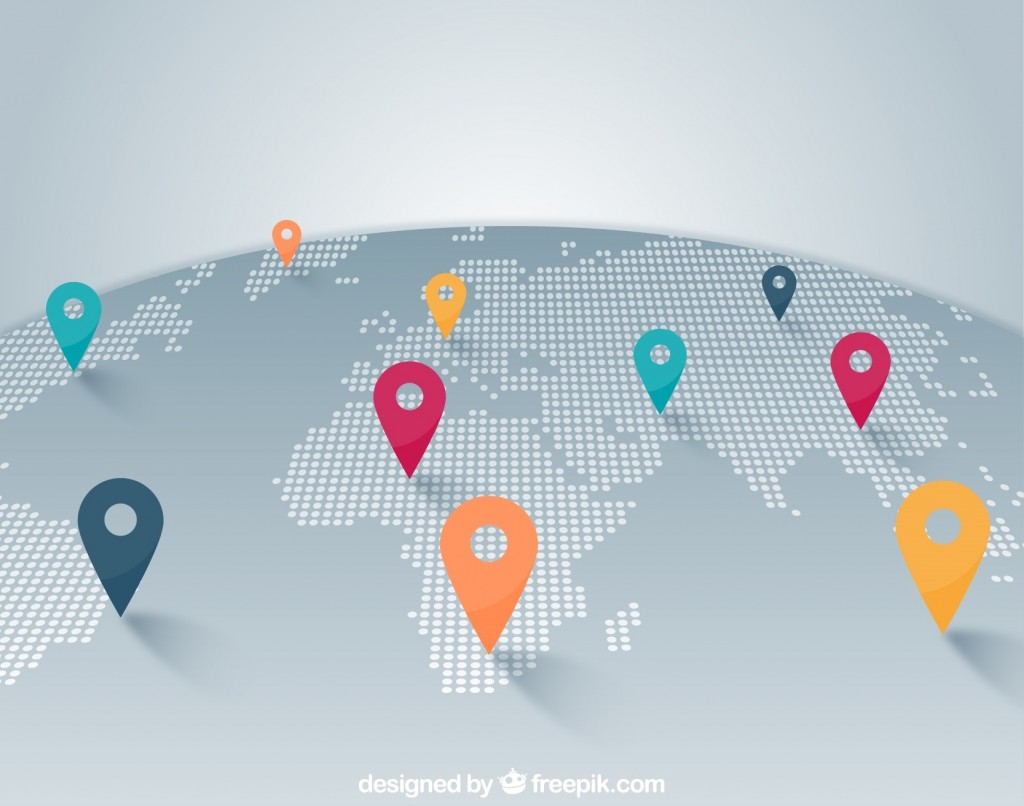Marketing and Translation – What are the challenges?
If you want your business to succeed, it is crucial that your product or service is made known to potential customers or buyers, and one of the most effective ways to achieve this is by having an excellent marketing strategy.
The term marketing refers to different activities that will introduce your product to potential clients, promote it, make it stand out and convince them to buy your product. This includes public relations, promotions, advertising and sales. You could be offering an excellent product or service within a specific industry, but without marketing it is very unlikely you will get the level of sales you need in order to stay in business.
Marketing is probably one of the most important tools for your business and it becomes essential when you decide to expand your business and take it to international markets.
How does marketing make a difference to your business?
A good marketing strategy can make the difference between success and failure.
- Marketing is a useful tool that will make you sell more.
It is crucial for any business to get known in order to get more customers and sales. Depending on the type of marketing campaign you are using, you will be able to see an increase in your sales within a few days or even hours.
- You will increase awareness of your brand
By raising awareness of your brand and products the audience you target will always have them in mind. You will be building a large audience of potential clients that will know who you are, what you are offering and where to find you.
- You will get consumers to trust you when it comes to marketing your business or product, the earlier you start the better. If you start early you will be building a relationship with your target audience and forming an image of reliability, sturdiness and honesty. In exchange, people will trust your business and your products.
- With marketing you will build a powerful brand
The smarter marketers will set out to sell more products while building a powerful brand that clients will find easy to remember. They understand that professional branding is what separates you from your competitors and what make your clients choose your products and brand instead of others. Without marketing it is almost impossible to develop a powerful brand.
Going international – Are you ready?
Becoming a global company may be the dream of many business owners, but the truth is that it is a huge step and it takes time to be ready for that big challenge.
In order to take your products or services to the international market you will need to consider some important factors, as expanding your business and creating a strong international presence is not as simple as it may seem.
1. Customers
It is important to ensure that the country or countries you want to expand have the customers for your product. It is crucial to invest time and money into researching your potential market and see if your product has the same appeal as in your home country. If your customer does not exist in your new market or there is no need for what you offer, then it may not be a good idea to enter that country.
2. Compatibility
It is important that the new markets you try to enter are similar to yours. Although the business environment will not be exactly the same as the one in your home country, the fewer differences there are, the smoother the business discussions will go.
3. Resources
To have the necessary resources and staff for the expansion of your business is crucial if you want to go international. Before you decide to get into new markets, make sure you have the structural and financial stability to hire more staff in order to cope with the additional work that the growth will bring.
4. Marketing Strategy
Your marketing strategy for your local market will need to be adapted for your new target audience and translated into their language. Global campaigns bring lots of challenges for marketers and translators, as global marketing can be a very complex but fascinating world.
Global Marketing and Translation
Marketing, Advertising and global translation services work hand in hand in order to bring your products to new markets, understanding the culture of your new customers and the business environment of the country.
Marketers understand that it is paramount to remain consistent in branding but at the same time adapt to the new environment. The creative marketing campaign that attracts lots of customers and have a real impact in one territory may completely fail in another country for many different reasons. Therefore, you will need to make some adjustments to your approach or even your product if you want to succeed in a new market.
It is important to understand what the customer needs and wants across different segments. Therefore the marketing campaigns need to be aligned to differing social and cultural sensitivities, and marketers must have a deep understanding of how the demographic, geography and industries will affect messaging.
While implementing a successful marketing campaign in the new territory is paramount, it is also crucial to get an expert to translate it to the local language. We at Language Reach believe that the translation of your marketing material is vital if you want to succeed, as a poor translation could cause great damage to your brand.
The Role of Translation When Going International and the Challenges It Faces
Companies of all sizes see expanding to international markets as a way of improving their profitability and strengthening their sales performance. However, the importance of the translation of their marketing material and product information is often overlooked.
The savvy marketer will know that the translation of marketing content is essential and that it needs to be approached with much more patience, sensitivity and a very keen eye for detail. Unfortunately, one of the most common (and damaging) mistakes business owners make is to believe that translation is just a commodity and that it can be done by any translator, as all are the same.
Some of the reasons why translation plays a crucial role when going international include:
- Legal compliance
In many countries, in order to comply with the local regulations, products must have certain information on the pack, product labelling and/or instruction leaflets. If this information does not appear in the local language where you are selling the product you will be breaking the law.
- Marketing
To put it simple, it doesn’t matter how good your product is and how many benefits it offers; if your customer is not aware of all its characteristics, it is very likely they will not buy it. And the only way you can create awareness of your brand and product is by translating everything into the local language.
- Brand image
Consumers tend to trust a brand whose packaging appears in the local language. Again, buyers go with the product they understand and can relate to.
There are some important questions you should ask yourself before embarking on your marketing venture abroad. For example, how much of your marketing campaign do you intend to translate? Will you be targeting TV, web or radio for your marketing and translation? Do you know which investments are most likely to provide you with the greatest ROI in a completely new place and society that may be very different from yours?
Getting the answers to these questions may prove difficult but it is crucial to get them right if you want to succeed. Once you have the answers to these questions, then you can start thinking of the strategy for the translation of your marketing material.
It is important to understand that the process is not as simple as it may seem and that there will be problems along the way.
So, what are some of the challenges marketers and translators face when working together?
When embarking on the translation of a global marketing campaign, marketers and translators will face many challenges, including:
- Translating brand name and logo without distorting the company’s message
Many big companies have gone through this at the beginning of their expansion process and found the solution in transcreation. Creative translation or transcreation takes into account the new audience’s mind, culture and believes and edits the layout, images and wording of the campaign, ad or marketing material in order to make it suitable for the new target audience. This process involves creative translators with excellent copywriting skills who will do the research of the target market and use the information gathered to modify the identity of your brand according to the culture of your new audience.
- Timely turnaround without neglecting quality
Most of the times marketing content is time sensitive so marketers will try to rush their translations in order to get the global content as fast as possible, with the risk of neglecting quality. Investing in translation technology, as well as a reputable and high quality translation service provider, could be the solution if a company regularly translates lots of content or want to localize their content marketing and social media strategies. In the long run this will save the company money and time, so it is well worth the investment.
- Long review process
Translation reviews are normally time-consuming, so the clue is to find a way to avoid a lengthy review process. One option, if you believe that an investment in transcreation services is not an option due to your own personal circumstances, is to make sure that your content is ready for the international market from the very beginning of the process. That is, when you start writing the content, have in mind the international audience and keep your sentences simple and straight to the point, avoiding jargon, idiomatic expressions or clichés. This will make the translation process much easier and will save time during the reviewing process.
- Dealing with tricky elements in translation
When working on a translation of a global marketing campaign it is quite easy to fall into one of the many existing translation traps, and it can make the difference between the success and failure of your campaign. Some of these tricky elements or traps are:
- Humour
Adapting a funny quote or joke into another language can be very tricky, as what is funny in one language may not be so in another language or culture.
- Colours and imagery
In different contexts, words can have different meanings and the same applies to imagery. It is possible that one image can be positive in one market and make no sense at all when applying it in another market. Or even worse, be offensive or have a negative meaning, which will be very damaging for the brand. The same applies to colours, as their meaning and what they represent vary from country to country depending on their cultures and believes.
- Metaphors, idioms and puns
Copywriters use these linguistic devices in order to make their adverts memorable and appealing. However, this approach relies upon the clear understanding of the local culture. Even though the translation of the language can be achieved correctly, the ideas and the original intention may be lost in translation if not done carefully.
- Cultural blunders- Before starting the translation process, it is crucial to consider everything such as religion, traditions and cultural beliefs of the new audience. Lack of cultural research can result in failure and damage your brand.



